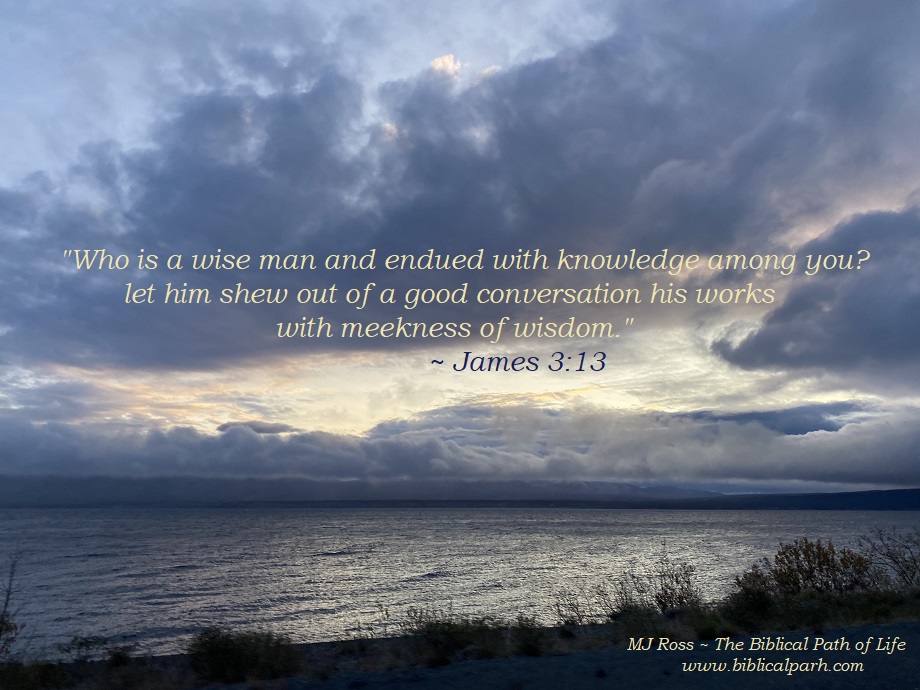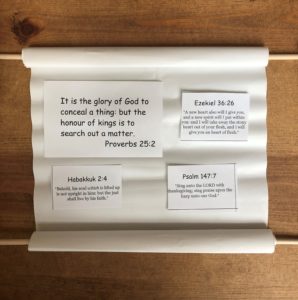
“There is a way that seemeth right unto a man, but the end thereof are the ways of death.”
Proverbs 16:25
“The way of a fool is right in his own eyes” (Proverbs 12:15). Consider what comes when one behaves as a fool. “There is a way which seemeth right unto a man, but the end thereof are the ways of death” (Proverbs 14:12).
As Christians, notice what we should learn about how to live wisely. “1. The preparations of the heart in man, and the answer of the tongue, is from the LORD. 2. All the ways of a man are clean in his own eyes; but the LORD weigheth the spirits” (Proverbs 16:2). Clean means “clear; pure (morally). People generally think they are right (basically morally good). However, we recognize that it is the Lord who weigheth (means “measure out as with a balance”) the spirits. Spirits means “the element of life in the soul—the part of man that enables him to think and reason”. The Lord will prepare our heart if we let Him. Having done this, God knows the intents of the heart (see Hebrews 4:12). Also remember what is recorded by Jeremiah. “23. O LORD, I know that the way of man is not in himself: it is not in man that walketh to direct his steps. 24. O LORD, correct me, but with judgment; not in thine anger, lest thou bring me to nothing” (Jeremiah 10:23-24). It is important to recognize that a Christian must check their lives according to what God says in His Word – not compare that life to other Christian’s lives. Knowing God’s Word helps us understand what God expects. As a Christian reads the Bible, sin is revealed that must be corrected. We are to use God’s Word to understand how to correct our hearts and lives.
Use the following to help you understand only a few wise words by which to live found in Proverbs:
The following is something very important all Christians should do: “Commit thy works unto the LORD, and thy thoughts shall be established” (Proverbs 16:3). When we follow after God and His ways, our thinking will be correct (established means “stable, fixed or set aright”).
Remember: God made everything for Himself. “The LORD hath made all things for himself: yea, even the wicked for the day of evil” (Proverbs 16:4). Accept God’s sovereignty. We are to understand that God is in control. We are to please God, not ourselves. Remember the fool: “The fool hath said in his heart, There is no God. They are corrupt, they have done abominable works, there is none that doeth good” (Psalm 14:1). Then remember the faithful who trust God: “But without faith it is impossible to please him: for he that cometh to God must believe that he is, and that he is a rewarder of them that diligently seek him” (Hebrews 11:6). A Christian must get in step with and walk with God!
“Every one that is proud in heart is an abomination to the LORD: though hand join in hand, he shall not be unpunished” (Proverbs 16:5). Even if all of the world joins you, if you are proud in heart (means: “raised up within the center of being—heart, emotions, will”), you will be an abomination (means: “morally disgusting”) to the Lord and will not go unpunished. It really does not matter what everybody else is doing; it matters that Christians do what is pleasing to God.
“By mercy and truth iniquity is purged: and by the fear of the LORD men depart from evil” (Proverbs 16:6). When man fears God and departs from evil, God forgives.
“When a man’s ways please the LORD, he maketh even his enemies to be at peace with him” (Proverbs 16:7). What great motivation to want to please the Lord!
“Better is a little with righteousness than great revenues without right” (Proverbs 16:8). As we have learned, riches of this world are not to be desired over the things of God.
“A man’s heart deviseth his way: but the LORD directeth his steps” (Proverbs 16:9).The word deviseth means “the activity of thinking, creating new ideas” and directeth means “confidence that God will direct our paths”. It can be quite easy to make grand plans for one’s life. However, Christians are to understand with confidence that God will direct our paths.
“There is a way that seemeth right unto a man, but the end thereof are the ways of death” (Proverbs 16:25). Be encouraged to recognize that even when it seems right to us, if it isn’t what God has taught (according to Scripture), the end is death.
“He that is slow to anger is better than the mighty; and he that ruleth his spirit than he that taketh a city” (Proverbs 16:32). Learning to control one’s anger (one’s spirit) is very important, more important than conquering a great city.
These are only a few of the great and wise words found within the book of Proverbs. Christians would be wise to read and follow the wisdom Solomon recorded for us to know. Remember that it is a personal choice – to seek wisdom or to become a fool. We would be wise to not only read, but to memorize the many words of wisdom found in God’s Word.
Have you learned the importance of committing your life to the Lord understanding that it is only then that your thoughts will be established which will allow your path to be right before God?









